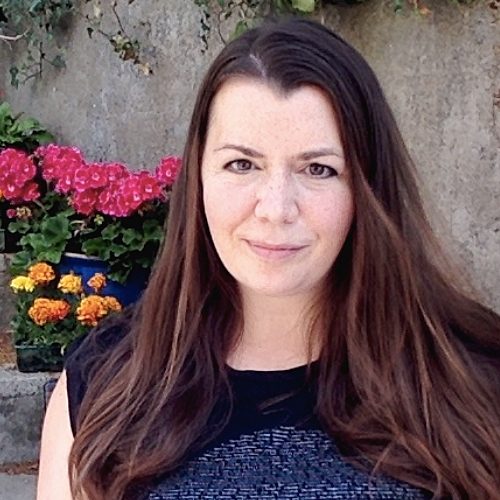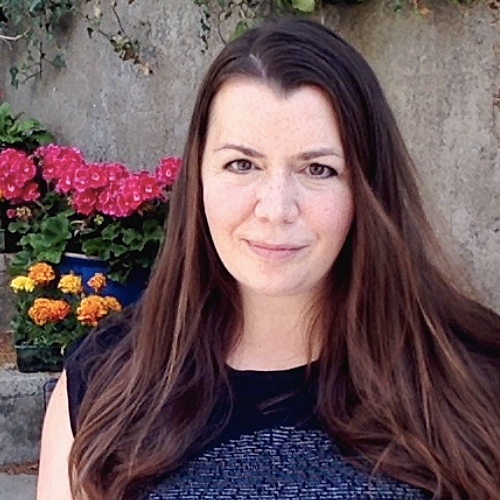 IBCLC Detailed Content Outline: Development and Nutrition Focused CERPs - Section I
IBCLC Detailed Content Outline: Development and Nutrition Focused CERPs - Section I
Access CERPs on Development and Nutrition for the IBCLC Detailed Content Outline recertification requirements. Enjoy convenient on-demand viewing of the latest Development and Nutrition focused IBCLC CERPs at your own pace.


Professor Amy Brown is based in the Department of Public Health, Policy and Social Sciences at Swansea University in the UK. With a background in psychology, she has spent the last thirteen years exploring psychological, cultural and societal influences upon infant feeding decisions in the first year. Her research seeks to understand how we can shift our perception of how babies are fed away from an individual mothering issue to a wider public health problem – with societal level solutions. Dr Brown has published over 60 papers exploring the barriers women face in feeding their baby during the first year. She is a mother to three human children and three book babies: Breastfeeding Uncovered: Who really decides how we feed our babies, Why starting solids matters, and The Positive Breastfeeding Book: Everything you need to feed your baby with confidence. She is a regular blogger, aiming to change the way we think about breastfeeding, mothering and caring for our babies.
Topic: Breastfeeding Trauma: How Can We Recognise and Support Mothers Who Wanted to Breastfeed but Were Unable to Meet Their Goals? - [View Abstract]
Topic: How Can We Better Support Mothers Don’t Meet Their Breastfeeding Goals? - [View Abstract]
Topic: What Do Normal Infant Feeding Patterns Really Look Like? - [View Abstract]
We know that responsive feeding gets breastfeeding off to the best start. New parents are told that breastfed babies often feed 8 – 12 times a day, but in practice many new mothers will find themselves breastfeeding more frequently than this. Research exploring breastfeeding frequency is however conducted primarily with younger infants, focuses simply on breast versus bottle, or was funded by industry.
This presentation reports novel findings from a research study of 18,000+ mothers with a baby or child aged 0 – 5 years old. It examines how often babies feed during the day and night for each age range by milk feeding type, mode, and approach (e.g. schedule versus responsive) and how frequent day and night feedings remain the norm for breastfed babies into the preschool years. The data also explores differences in maternal perceptions of infant variations in hunger e.g. in response to growth spurts, variations over different days, and cluster feeding, highlighting how breastfeeding mothers describe a more varied pattern of infant feeding compared to those formula feeding.
Together the findings challenge notions that most babies breastfeed between 8 – 12 times per 24 hour and that irregular patterns or varied numbers of feeds are normal for breastfed infants. Although many breastfeeding practitioners will recognise this pattern, these findings will provide both an addition and challenge to the scarce existing research literature on infant feeding patterns.

View Details / Enroll

What Is Stopping Us? Kangaroo Care Implementation in Neonatal Intensive Care Units

Sarah Coutts is a registered nurse and lactation consultant with over 10 years experience in the neonatal intensive care unit. She currently is working as a Developmental Care Specialist in a NICU in Vancouver, Canada. Previous to this position Sarah was the Kangaroo Care Coordinator of an implementation science study to improve uptake of Kangaroo Care in NICUs in British Columbia. She is part of team of clinicians and researchers interested in understanding the barriers and enablers to Kangaroo Care from both the healthcare provider and parent perspectives and creating innovative strategies to increase knowledge and practice of Kangaroo Care in the NICU. She is passionate about raising awareness of the positive outcomes of zero separation between preterm and sick infants and their parents in the NICU.
Preterm infants are at increased risk for impaired neurodevelopmental outcomes (Stoll et al, 2010). There is evidence supporting the differences in outcomes related to how we provide care to preterm infants and the effects of the environment in which the care takes place. One of the most effective ways to reduce impaired infant outcomes is inviting parents to actively participate in care activities and provide Kangaroo Care (Boundy et al., 2016; Charpak et al., 2017). Despite international recommendations, empirical evidence, and an implementation science project focused on strengthening Kangaroo Care in neonatal intensive care units in British Columbia, Canada, implementation has been slow due to various barriers to uptake (Charpak et al., 2020; Coutts et al., 2021; WHO, 2020). A ‘one size fits all’ approach cannot guide Kangaroo Care implementation as it is a complex intervention and each NICU presents unique barriers and enablers. The uptake of Kangaroo Care relies on the involvement of parents and healthcare providers and their understanding and commitment to the evolving paradigm shift in neonatal care. This transition requires environmental and social supports, systems level change of philosophies of care, and assistance for healthcare providers to recognize their changing role.

View Details / Enroll

Working With Families Feeding Beyond 12 Months: Offering Support With Confidence

After a career as a primary school teacher and Deputy Headteacher in central London, Emma trained with the Association of Breastfeeding Mothers, qualifying as a breastfeeding counsellor with them in 2007 and continuing with them as their trustee and chair. Emma first qualified as an International Board Certified Lactation Consultant in 2011. She has supported families at groups in North London for 14 years as a volunteer and has a small private practice. Her book, “You’ve Got It In You: a positive guide to breastfeeding” was followed by “The Breast Book: a puberty guide with a difference – it’s the when, why and how of breasts” (published by Pinter and Martin). Her articles have been featured in print and online including on the UNICEF UK Baby Friendly Initiative website. Her article, 'The dangerous obsession with the infant feeding interval' is her most popular. She has two children and lives in London.
This session focuses on supporting parents who are breastfeeding/chestfeeding beyond 12 months. Many of us live in countries where breastfeeding beyond 12 months is not the norm. When it does happen, it may not happen openly. Parents are often feeling increasingly isolated and may be dealing with lack of support from family and friends. There can be further challenges such as new issues with positioning and attachment, conversations with employers and health professionals, dealing with family break-up and thinking about new pregnancies. Parents continuing to feed older children may not always feel able to reach out to local breastfeeding support services that often focus on the newborn period. You will be encouraged to reflect on your personal approach to supporting feeding older children and whether you have any unconscious or conscious bias that may affect your work. The session will give you confidence to discuss the value of continuing to breastfeed with families and colleagues and be able to offer a variety of support.

View Details / Enroll

“The Little Engine That Could”: Breastfeeding Journeys of Very Premature Babies on Home Tube Feeds

Karen Lasby leads a specialized nursing team in post-discharge follow-up of extremely premature infants and their families in Alberta, Canada. She has presented locally, nationally, and internationally on the topics of premature babies, neonatal oral feeding, and NICU-to-home transition, including the 2019 and 2022 GOLD Neonatal Conferences. She has been the co-investigator in several research studies examining outcomes for very low birth weight infants and has published articles on maternal work in the NICU, neonatal transition, and gastroesophageal reflux. An educator for nearly thirty years, Karen has taught, written instructional material, and produced online neonatal nursing courses. Formerly the president of the Canadian Association of Neonatal Nurses, she served on this national board for twelve years, and on the board of the Council for International Neonatal Nurses for three years. Karen’s work has been recognized by the Canadian Institute of Child Health and College and Association of Registered Nurses of Alberta. Karen is the co-author for the parent book, "Preemie Care: A guide to navigate the first year with your premature baby".
Noriko Woods is a member of a specialized nursing team in post-discharge follow-up of extremely premature infants and their families in Alberta, Canada. She started her Level 4 NICU RN career in Kanagawa, Japan, trained and worked for 5 years before moving to Canada. She worked 5 years as a Level 4 NICU RN in Calgary Alberta before she started her current position at Postpartum Community Health Services, as a public health nurse. She became passionate about breastfeeding with her own experience with her first child in 2009 and obtained the IBCLC in 2011. She has been working with early postpartum mothers and babies to reach their breastfeeding goals as a Lactation Consultant in her community. She is passionate about supporting families to achieve positive feeding experience with a bottle and at breasts. She has been participating with various committees such as Calgary NICU LC group to revise the breastfeeding guidebook for NICU parents, Calgary Breastfeeding Matters Group annual conference committee, GOLD Neonatal Professional Advisory Committee.
Long NICU stays, invasive oral procedures, chronic lung disease, and gastrointestinal complications can contribute to a complex oral feeding journey for premature infants. Frequently, the NICU journey prioritizes bottle feeding over breast feeding. Breastmilk supply and transfer are challenging for mothers and infants born very premature. At the time of NICU discharge, most very premature infants remain fragile oral feeders with weak breast-feeding and bottle-feeding skills, and some require tube feeding support. Community-based breastfeeding support is often lacking, and breastmilk intake and direct breastfeeding diminish beyond discharge. The authors will highlight four remarkable case studies of very premature newborns who were discharged home on nasogastric tube feeding. All four babies had a complex oral feeding journey in the NICU with minimal opportunity to develop breastfeeding skills. Parent comments will be shared, including barriers and facilitators for breastfeeding. Take away messages will focus on helpful strategies to support families taking home a fragile feeder and progressing toward positive, enjoyable oral feedings and more importantly, weaning from tube support and advancing breastfeeding.

View Details / Enroll

“Zooming Ahead”; Post-NICU Discharge Very-Low-Birth-Weight Infant Follow-up Program Goes Virtual

Karen has worn a number of hats in her nursing career but always comes back to her passion for premature babies. Her background includes NICU nurse, transport nurse and NICU educator, rural nursing, staff development, pediatrics, pediatric intensive care, and community health. For over 20 years Karen has lead Calgary’s specialized “Neonatal Transition Team”, which she will talk about today. Karen has presented locally, nationally, and internationally and has also been co-investigator in several research and quality improvement studies examining outcomes for very low birth weight infants. For nearly 30 years, Karen taught, wrote instructional material, and produced on-line courses for nurses to earn a certificate in neonatal nursing through Mount Royal University. Karen is a past-president of the Canadian Association of Neonatal Nurses and served on this national board for 12 years, and on the international board of the Council for International Neonatal Nurses for 3 years. In 2019, Along with co-author, Tammy Sherrow, Karen published the book “Preemie Care: A guide to navigating the first year with your premature baby”.
Topic: “Zooming Ahead”; Post-NICU Discharge Very-Low-Birth-Weight Infant Follow-up Program Goes Virtual - [View Abstract]
Many preterm infants remain vulnerable following discharge from the neonatal intensive care unit (NICU). Health challenges persist beyond the NICU including respiratory illness, breastfeeding progression, bottle feeding incoordination, behavior and development issues, impaired growth, infrequent stooling, and gastroesophageal reflux. Preterm infants are up to two times more likely than full term infants to be hospitalized in the first year of life. Parents are challenged to transition their premature baby home and to keep them home!
Community-based, specialized follow-up services following NICU discharge have a powerful impact. The Neonatal Transition Team in Calgary, Alberta, Canada provides post-NICU follow-up for very-low-birth-weight infants and their families. The team consists of community health registered nurses with advanced skill in premature infant outcomes, feeding and neurodevelopmental assessment, and a consultation partnership with nutritional and feeding specialists. While home visits have been the backbone of this service, the team questioned the feasibility and acceptance of virtual care and completed a three month quality improvement pilot. This virtual care pilot demonstrated optimization of health-care resources by providing safe, high-quality care at a reduced operational cost. The pilot was instrumental in the team’s management during the SARS-COVID-19 pandemic. Virtual care has been fully operationalized into the service delivery model and expanded to serve other newborns with feeding or growth challenges.

View Details / Enroll











